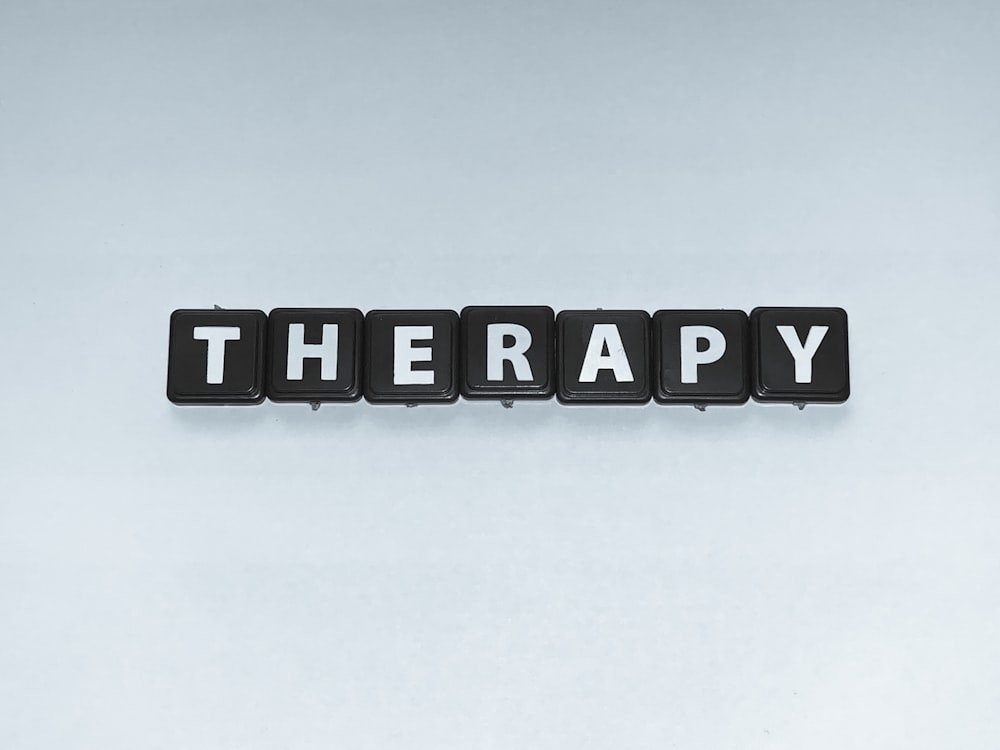
Let’s Talk About Therapy
Recoginsing a need for therapy, is one of the hardest things but also one of the best things – knowing where to start like finding someone to support you, as well as what style of therapy is right for you is whole other different ball game.
During your youth years, you might feel like the only people who are in therapy are the stars of American and reality TV shows, but now with the conversations opening up, stigmas and taboos have reduced and mental health has moved to the forefront of most discussions in healthcare, suddenly having regular therapy sessions feels both desirable and achievable.
You may feel overwhelmed when you’re finding the right person for you, but this shouldn’t be a deterrent when it comes to caring for your mind healthy. If you have been considering exploring therapy for the first time or are well versed in CBT but is considering a different path of support, then keep reading for a therapy 101. All you need to get is to get started on our journey!

CHOOSING THE RIGHT STYLE OF THERAPY FOR YOU.
Cognitive Behavioural Therapy (CBT)
This style of therapy helps individuals to change pattterns of negative thought – it’s commonly used to treat individuals who suffer from anxiety, depression as well as other mental health problems.
CBT work on the idea that they way we think about different situations tend to affect the way we feel and behave – like if we view situations negatively, then we may experience negative emotions and this will lead us to behave in an unhelpful way. Then main aim of CBT is to provide techniques of dealing with overwhelming problems in a positive way – breaking the situation down into smaller, more managable, practial ways to improve an individuals state of mind daily. This all sounds great, right?
This type of therapy can be useful for those in certain circumstances where medications haven’t successfully managed their systems, and can only give relief in a very short period compared to other styles of therapy. Therapists want to understand your thoughts and feelings to break down if there are rational or unhelpful ways in which they impact your life before interrupting the cycle of negative thinking we all fall victim to at times.
As well as depression or anxiety disorders, CBT can also help individuals with conditions like:
- Borderline personality disorder
- Bipolar disorder
- Eating disorder – Bulimia and Anorexia
- Phobias
- Post-traumatic stree disorder (PTSD)
- Sleep problems – Insomnia
- Schizophrenia
- Obessive Compulsive Disorder (OCD)
Integrative Counselling & Psychotherapy
It looks at every aspect of an individual’s life; like recognising their mental, physical and emotional needs, then uses different therapeutic modalities to tailor an individual approach to a certain need of the client. The counselling recognises that we are all made up of different psychological parts – some may conflict with one another – it aims to merge the three main schools of psychotherapeutic thought:
Cognitive Behavioural Therapy: As mentioned above, this style of talking therapy is based on the understanding that our thoughts, actions and feelings are all interconnected and negative can leave us feeling like we’re trapped in a cycle that we can’t get out of.
Humanistic Therapy: An emphasise therapy, this is important of being true to yourself, as well as your inner feeling to lead the best life possible.
Psychoanalytic Therapy: This type of therapy is based on understanding the psychological issues that are rooted within the unconscious mind, mental health issues like depression and anxiety caused by repressed trauma or issues that had occurred during childhood.
The blending of the techniques that the therapists can draw from different methods in their therapeutic toolbox, makes for a flexible, dynamic approach to help clients who need a mixture of behavioural and relational approaches. This adaptable method means that no stone will be left unturned.
Eye Movement Desensitisation and Reprocessing (EMDR)
This therapy help people who are recovering from trauma or other distressing experiences including PTSD, anxiety, depression and panic disorders. Just like other therapies that require in-depth conversations between the client and therapist, EMDR approaches things a little differently – it works to resolve unprocessed trauma in the brain, then allows the individual to get out the fight, flight, freeze response which can occur and remain stuck ‘on’ following a traumatic event – this encourages the brain to process memories safely for healing to happen.
EMDR can be hepful for a whole range of life challenges and mental health problems:
- Depression illness and medical issues
- Eating disorders
- Grief and loss
- Chronic illness and bipolar disorder
- Anxiety, phobias and panic attacks
- Plus many more….
Person Centred Counselling
For someone to achieved their self-actualisation, then a person-centred theraptist will offer them:
- Congruence: An honest and genuine in building a trusting relationship
- Empathic: See the situations from the client’s viewpoint and have no personal opinion.
- Unconditional Positive Regard (UPR): Accepting and valuing and individual’s experience.
This type of approach creates an equal enviorment for both the therapist and client, and allows empowerment and motivates postive action and change. Beneificial to the individuals who are opposed to the idea of therapy as a result of fear of judgement or criticism.
Humanistic Therapy
The therapy has an approach tha emphasises is important to be true to yourself in order to lead a fulfilling life, work to create a safe, supportive space where an individual can explore their potential – mentially, emotionally and spirtually. It’s accomplished through development of unconditional positive, both from other and from yourself. This type of therapy especially suites people who live with certain conditions, like panic disorders, depression, OCD, bipolar anixety, addication and schizophrenia.

FINDING A THERAPIST NEAR YOU
NHS Therapy
If you have access to the NHS then your local GP can refer you for therapy that is free of charge. It’s always easy to speak openly about your feeling and mental health, your GP is there to support you and the charity ‘Mind’ has some great advice on how to prepare yourself for this conversation. In some areas of the UK, there are services that you can contact directly to refer yourself for therapy – contact your local GP to find out more. But unfortunatley this isn’t alway the case and the waiting lists are often fairly long for NHS therapy, however start this conversation can be a helpful first step i feeling that you have made some progress, and making your GP aware that you of struggling and that don’t have to face your problems alone.
Private Therapy
Counselling Directory – It doesn’t if you are looking to start working with a therapist or counsellor, online or in person. The counselling directory is a great website to begin your journey to finding the right person for you. There is over 16,000 registered professional onsite, so there is sure to be one who can help support you, whenever you are on your journey.
Pink Therapy – This is the UK’s largest independent organisation for a therapist with LGBTQ+ experience. They recognise the spectrum of different gender and sexual experiences and welcome anyone who is engaged in consensual sexualities who are seeking a safe place to understand and be understood.
IMPORTANT THINGS TO CONSIDER WHEN YOU ARE CHOOSING IF THE THERAPIST IT RIGHT FOR YOU.
When it comes to choosing someone to support you with your mental health is an extremely personal decision, and a certain type of therapy has worked for someone close to you, it doesn’t mean that it’s the right fit for you. You must consider factors such as; age, gender and experience when you are seeking out a therapist as feeling safe, comfortable, understood and supported are a vital part of a positive and productive relationship that will help you so much on your journey.
Speaking to the first person or before the initial session with a new therapist isn’t always as easy and getting to know each other and opening up to a stranger can be challenging, but the most important thing to remember is to trust and perseverance as you might find strength and progress sooner than you think. Be gentle to yourself and patient when it comes to your healing.






